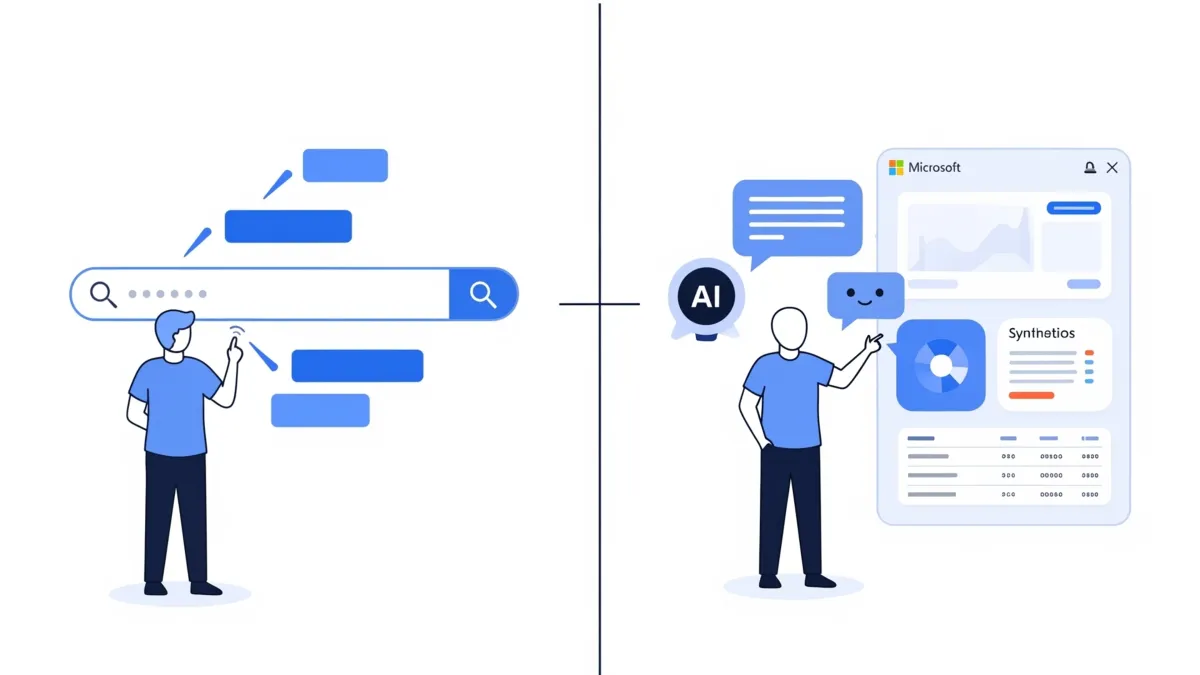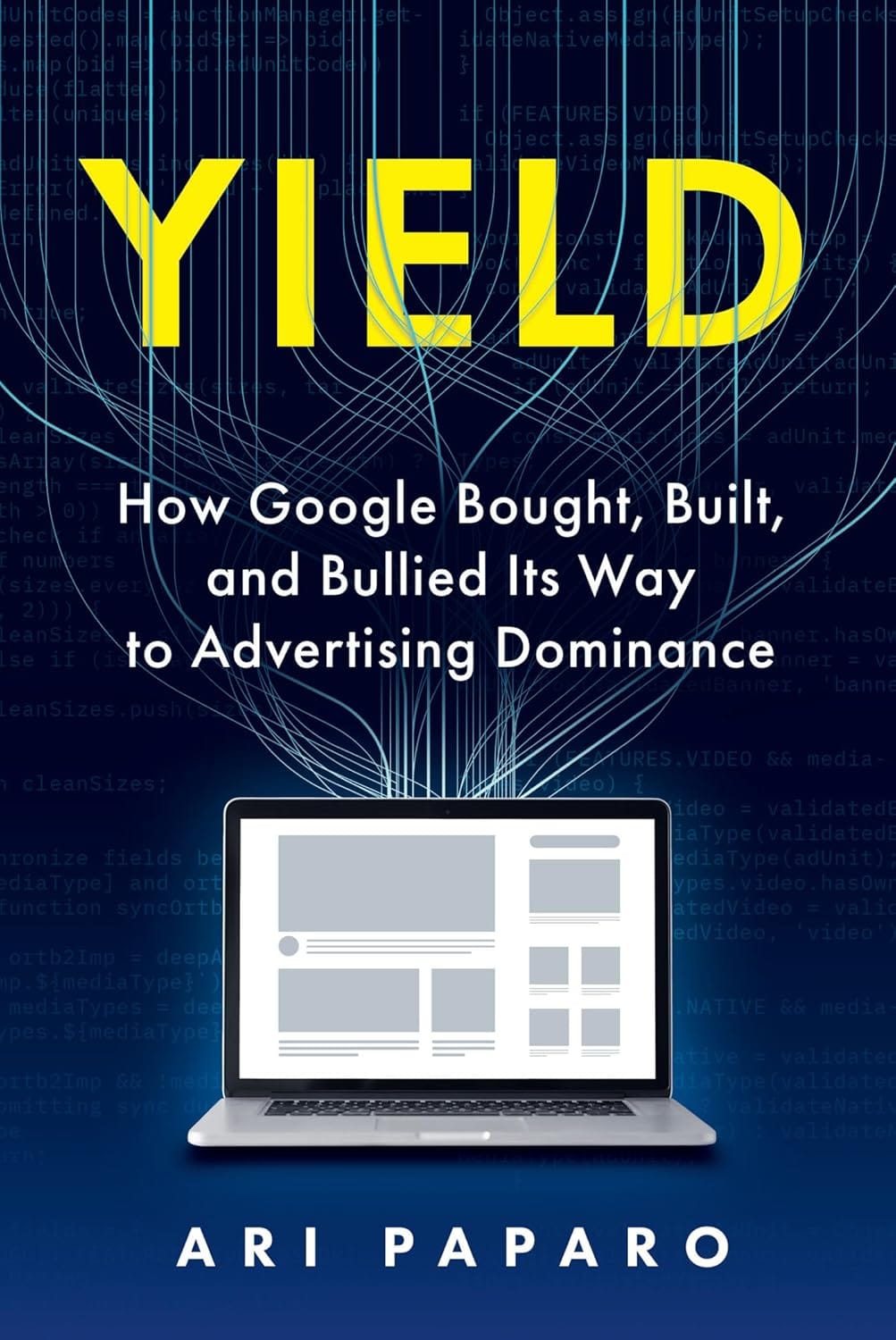
Microsoft Advertising unveiled comprehensive insights about generative AI's impact on search behavior and advertising effectiveness through a detailed July 2, 2025 interview with Nicole Schumacher, Senior Director of Product Marketing. The discussion reveals how artificial intelligence fundamentally alters consumer discovery patterns while creating new opportunities for brands to connect with audiences.
Generative AI introduces revolutionary search capabilities that extend beyond traditional keyword-based queries. "In the past, to search for something, you had to know exactly what you were looking for. You had to be an expert at keywords, briefly describing or distilling what you wanted in one single step to pinpoint your search to practical results," explained Schumacher during the comprehensive discussion about search evolution.
Get the PPC Land newsletter ✉️ for more like this.
Summary
Who: Nicole Schumacher, Senior Director of Product Marketing at Microsoft Advertising, provided insights about generative AI's impact on search and advertising.
What: Microsoft revealed how generative AI transforms search behavior from keyword-based queries to conversational interactions, with Copilot demonstrating doubled click-through rates and 53% increased purchases.
When: The comprehensive discussion occurred on July 2, 2025, reflecting developments throughout 2024 and early 2025 as Microsoft integrated AI capabilities across its advertising ecosystem.
Where: The insights apply to Microsoft's advertising platform including Bing search engine, Edge browser, and Copilot experiences across web and mobile applications.
Why: Traditional search required keyword expertise and multiple separate queries for complex research, while conversational AI enables natural language synthesis and multi-step interactions that better match human communication patterns and information needs.

Yield: How Google Bought, Built, and Bullied Its Way to Advertising Dominance
A deeply researched insider’s account of Google’s epic two-decade campaign to dominate online advertising by any means necessary.
Modern conversational search enables complex, multi-faceted queries that previously required multiple separate searches. Users can now express detailed needs through natural language rather than attempting to distill complex requirements into specific keywords. This shift represents a fundamental departure from conventional search behavior patterns that dominated the internet for over two decades.
The technical foundation supporting this transformation relies on large language models and sophisticated deep learning algorithms. These systems demonstrate enhanced understanding of nuance and context compared to previous search technologies. "This allows us to truly understand intent and deliver highly customized results in ways we've never been able to before," Schumacher noted about the technological capabilities enabling conversational search.
Microsoft Copilot exemplifies this integration by synthesizing information across multiple web sources while responding through natural dialogue. The system can format information according to user preferences, whether through bullets, tables, or varying levels of detail. Additionally, Copilot provides suggestions for next steps and additional assistance opportunities at the conclusion of each response.
Performance metrics demonstrate significant improvements in advertising effectiveness when Copilot participates in user journeys. Microsoft reports doubled click-through rates compared to traditional search advertising placements. More importantly, the company documented a 53% increase in purchases when Copilot involvement occurs during the customer journey, indicating substantial commercial impact beyond basic engagement metrics.
Microsoft's advertising business has crossed $20 billion in annual revenue as these AI-powered experiences gain traction across Bing and Edge browsers. The milestone reflects growing market share for Microsoft's search properties while demonstrating commercial viability of AI-integrated advertising formats.
Advertisement placement within Copilot follows a distinct structure compared to traditional search engine results pages. Advertisements appear below organic Copilot responses with conversational summaries explaining relevance to user queries. This "Ad Voice" feature creates clear separation between organic and sponsored content while providing contextual connection between advertisements and ongoing conversations.
The format produces fewer but more personalized advertisement placements designed to feel natural within conversational flows. Visual elements enable advertisements to stand out more effectively in Copilot's streamlined interface compared to traditional search engine results pages containing multiple competing advertisements.
Microsoft leverages existing creative assets from search campaigns to populate Copilot advertisements, drawing from text-based ads, feed-based ads, and multimedia formats. Performance Max campaigns provide optimal compatibility with Copilot's advertisement system due to algorithmic flexibility in matching product offerings with user intent expressions.
Shopping experiences demonstrate particularly strong performance improvements through AI-powered search integration. The 53% purchase increase specifically relates to shopping interactions where Copilot facilitates product discovery and evaluation processes. Research indicates that Performance Max campaigns incorporating AI-driven optimization generate 2.6 times more site visits and 4.2 times more conversions for retail advertisers compared to standard campaign structures.
Showroom advertisements represent purpose-built formats specifically designed for conversational experiences. These immersive formats launched at Cannes Lions 2025 in June enable consumers to ask custom questions through natural conversation rather than searching for information across multiple sources. Users access comprehensive product information from both brand perspectives and web-based reviews within unified experiences.
Consumer behavior patterns increasingly favor conversational search capabilities for complex research tasks. Traditional search remains effective for specific brand, business, movie, or book queries where users possess precise knowledge about desired outcomes. However, conversational AI excels in situations requiring guidance, multi-perspective synthesis, or description-based searches where specific names remain unknown.
The experiential difference between traditional and conversational search extends beyond functional capabilities. "Moving to a conversational style gives users a more natural, intuitive, and reassuring experience. There's a voice on the other end engaging with you, partnering with you, and helping you to achieve what you're after," Schumacher described regarding user experience improvements.
Additional modalities including voice input create more engaging and interactive search experiences. Users can speak queries instead of typing when preferred, expanding accessibility while accommodating different interaction preferences. These capabilities contribute to the overall shift toward more natural human-computer interactions.
Three-quarters of users view AI assistants as complementary to traditional search rather than replacement technology, according to Microsoft's data analysis. This complementary relationship suggests both search methods will coexist while serving different user needs and contexts.
Brand strategy implications require reconsideration of content approaches beyond keyword optimization. Organizations must ensure content demonstrates trustworthiness, accuracy, and proper structure while considering user journey contexts and information needs across different moments. The emphasis shifts from keyword density toward comprehensive, authoritative content that addresses user questions thoroughly.
Microsoft's advertising ecosystem differentiates through search result expertise and search advertising experience. Product managers and engineers possess specialized knowledge about query result generation combined with promotional advertising impact maximization. This technical foundation provides advantages in developing conversational advertising solutions as the market evolves toward AI-powered interactions.
The breadth of AI-powered advertising solutions encompasses various campaign types from Performance Max to Audience advertisements. Advertiser productivity tools within Copilot and the Microsoft Advertising Platform enable multiple campaign variations leveraging AI for both workflow efficiency and outcome achievement through algorithmic optimization.
Future development over the next 12 to 24 months will focus on outcome optimization and advertiser productivity enhancement. Creative personalization capabilities will improve while becoming more accessible across broader format ranges. Audience segment building will incorporate sophisticated AI applications while insight discovery accelerates through automated analysis.
Bidding algorithm improvements will emphasize outcome-first campaign types rather than channel-specific approaches. Performance Max campaigns exemplify this transition toward unified optimization across multiple advertising channels and formats. As conversational AI assistant usage expands, purpose-built advertisement formats will continue evolving to maximize conversational experience benefits.
Voice-based, text-based, and additional interaction modes will influence advertisement format development. Microsoft anticipates continued innovation in conversational advertising experiences as user adoption grows and use cases expand across different contexts and scenarios.
Educational resources for marketers seeking generative AI familiarity include direct interaction with Copilot through questions about AI basics and advertising applications. Microsoft recently published comprehensive guides for advertisers learning about generative AI and search futures. Webinar recordings titled "The New Search Reality: How to Show Up, Stand Out, and Scale with AI" provide expert insights about search advertising era transitions.
The transformation represents one of the most significant shifts in digital marketing since search engine introduction. The change fundamentally alters how consumers discover, evaluate, and purchase products while requiring marketers to adapt beyond traditional keyword-focused optimization strategies.
Timeline
- February 2023: Microsoft debuts Copilot (formerly Bing Chat), integrating large language model with search
- October 1, 2024: Microsoft begins deploying AI-enhanced solutions across Bing with generative search capabilities
- October 5, 2024: Microsoft unveils AI-driven advertising advancements with clearer delineation between organic and sponsored conversations
- April 4, 2025: Microsoft launches Copilot Search in Bing, combining traditional search with generative AI capabilities
- May 1, 2025: Microsoft Advertising Platform makes Copilot available to all advertisers with 24/7 conversational support
- May 1, 2025: Microsoft ad revenue tops $20 billion as Copilot transforms search landscape
- June 2025: Microsoft launches Showroom ads at Cannes Lions 2025
- July 2, 2025: Nicole Schumacher details generative AI's search transformation impact


